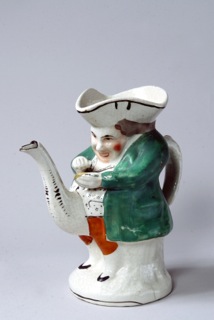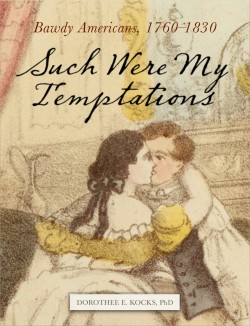The Glass Harmonica XXXtras Edition:
Such Were My Temptations

The image, "Such were my temptations", comes from a 1795 edition of Laurence Sterne's
A Sentimental Journey through France and Italy.Courtesy of The American Antiquarian Society.
When Dorothee started writing The Glass Harmonica, she knew the husband would have a secret. She had no idea that the husband, Henry Garland, would turn out to be the “Johnny Appleseed of Porn.” A rural bookseller in the early 1800s, he secretly operates a sex shop on cartwheels.
The novel is fiction but scholars agree it is historically likely that someone must have been traveling the new roads of New England selling books like Fanny Hill: Memoirs of a Woman of Pleasure. The research into what exactly Henry might actually have peddled from his horse and buggy led Dorothee to discover all kinds of art hidden in archives or published deep inside 400-page scholarly books. The images surprised, shocked, and delighted her. She showed them to friends. They loved seeing them. She hesitated. She showed them to strangers. They loved seeing them. So she decided to publish them. With technology now allowing art to be easily distributed, she contacted libraries for image rights. The result is a new type of ebook: pictures, videos, music and text, with links to readers' social-media conversations, virtually bound; a dynamic combination of book, museum exhibit and salon. Such Were My Temptations: Bawdy Americans, 1760-1830, will be available in spring, 2012.
Such Were My Temptations peeks into Henry’s Sex Shop on Cartwheels
 |
| Toby jug. unknown artist, United States, ca. 1830. Courtesy of The Kinsey Institute for Research in Sex, Gender, and Reproduction. |

